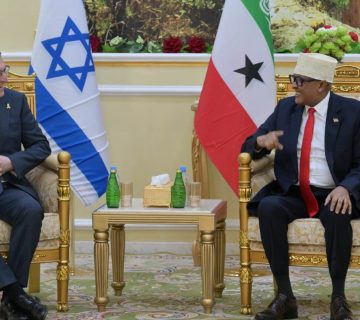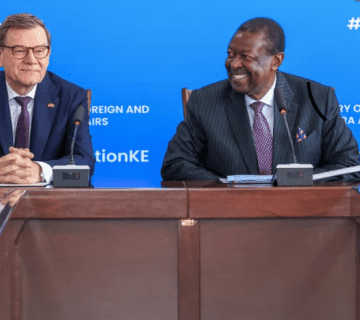Grand corruption scandals rocked the Jubilee administration’s first term (2013-2017), ranging from the National Youth Service (NYS) KES 759 million in the Ministry of Devolution and National Planning to the loss of close to five billion shillings in the Ministry of Health. The latter led to the suspension of financial aid program to the health sector by United States government in 2017. Due to the systemic corruption, parastatals such as Kenya Power and Kenya Pipeline may have lost funds running into billions of shillings.
At the dawn of Jubilee administrations’ second term in 2018, the president reached out to the opposition leader, Raila Odinga, and immediately after, picked up the gauntlet on corruption. For the better part of 2018, investigations coordinated by the Multi-Agency Team drawn from Ethics and Anti-Corruption Commission (EACC), Kenya Revenue Authority (KRA), Criminal Investigative Department (CID), National Intelligence Services (NIS), and Directorate of Public Prosecution have led to arrests, prosecutions, and recovery of public assets such as land.
The Thin Line
In the fight against corruption, President Uhuru Kenyatta emphatically declared that he was ready to lose friends but recover public assets, and restore the rule of law and political accountability. However, this loosely translated to an arrest warrant against the ‘high and mighty’ in both public and private spheres. While suspects have been arrests and prosecuted, but the fight is treading the thin line between political accountability and political machinations.
Indeed, there is a charged political backlash against this fight, and interestingly, the backlash has been coming from a section of the Jubilee Party, allied to the Deputy President (DP). This is solely because the fight against corruption is perceived to adversely involve the DP’s allies and the DP himself on the receiving end, and the perception that the fight is selective and intent on drowning the DP’s 2022 presidential ambitions. The perception is sustained by the closeness of the opposition leader and the president in the fight against corruption, especially when, the opposition leader has not officially quit elective politics nor forfeited 2022 presidential ambitions.
Besides the backlash damaging the president’s credibility in the fight against corruption, it has also been targeted at respective anti-corruption agencies and institutions of law and justice. The Director of Public Prosecutions (DPP) and the Director of Criminal Investigations (DCI) have received the most battering for their swift investigations and prosecutions, premised on diverse or conservative understandings around jurisdictional boundaries with the Ethics and Anti-Corruption Commission (EACC). This further injures the credibility of constitutional institutions and the Multi-Agency Team on corruption and portrays the fight against corruption as simply malicious. The Judiciary has suffered criticism from the executive for the slow dispensation of justice, as ‘evidenced’ by failed prosecutions, arbitrary injunctions against prosecutions, and asymptotic processes. On the other hand, the judiciary blames bungled prosecutions on poorly prepared cases, further vindicating the political backlash.
So, What Next?
Political and ethnic mobilization against the anti-corruption drive is slowly undermining the credibility of the process, and may affect the public support for the fight as ‘backlash constituencies’ show hostility. The relevant anti-corruption agencies should not relent in the fight, but build solid cases that will dispel the perception of malice and strengthen the momentum of the fight against corruption. This, however, relies on a record of strict impartiality, conclusive investigations, successful prosecutions, and an expedient judicial processes. More importantly, political party leaders and political party national executive councils should throw their weight behind the president. Their position on anti-corruption drive should be unequivocal to their supporters so as to quell the backlash and allow a friendly environment for the anti-corruption campaign to thrive.
Edmond Pamba is a Research Assistant at the HORN Institute.



